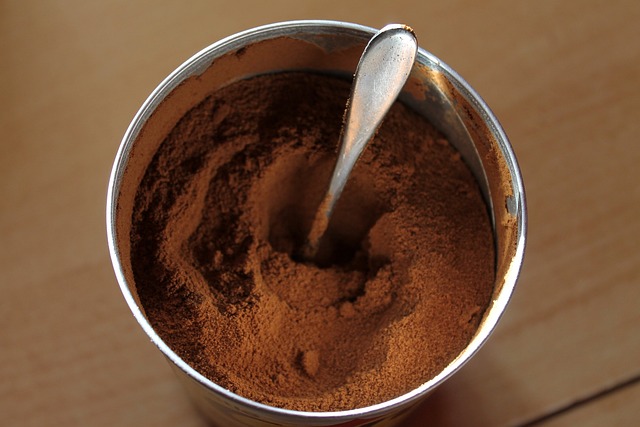
Is instant coffee bad for you? This popular and convenient alternative to brewed coffee has been a staple for busy mornings and quick caffeine fixes.
While some appreciate its ease and affordability, others question its health implications. Instant coffee is made by freeze-drying or spray-drying brewed coffee, which preserves most of the antioxidants and nutrients found in regular coffee.
However, concerns arise from its higher acrylamide content—a chemical that forms during the roasting process and has been linked to health risks.
Understanding the benefits and drawbacks of instant coffee can help you make an informed choice.
Is instant coffee bad for you?
Instant coffee is generally safe to consume in moderation and can offer some health benefits similar to regular coffee, such as improved mental alertness and antioxidants. However, it does have some potential downsides.
Instant coffee usually contains slightly less caffeine than brewed coffee, which may be a concern for those seeking its stimulant effects.
Some instant coffee brands may also contain additives, preservatives, or added sugar, which can contribute to unhealthy dietary habits if consumed in large amounts.
Additionally, instant coffee contains higher levels of acrylamide, a chemical that forms during the roasting process and has been linked to cancer in animal studies.

However, the levels found in instant coffee are generally considered safe for human consumption.
In summary, instant coffee can be part of a healthy diet if consumed in moderation, but it’s best to choose high-quality brands with minimal additives.
What are the major health differences between instant coffee and brewed one?
Why is instant coffee bad?
Instant coffee is not inherently bad, but there are some concerns associated with its consumption.
One issue is its higher acrylamide content, a chemical that forms during the roasting process and has been linked to cancer in animal studies.
the levels found in instant coffee are generally considered safe, consuming large amounts over time could increase health risks.
Additionally, some instant coffee brands may contain additives, such as preservatives, artificial flavors, or added sugar, which can contribute to unhealthy dietary habits if consumed excessively.
Instant coffee also tends to have lower levels of antioxidants and other beneficial compounds compared to brewed coffee, which might reduce some of its potential health benefits.
Moreover, the taste and aroma of instant coffee are often less rich and complex than brewed coffee, which might lead people to consume more to achieve a satisfying flavor, potentially increasing exposure to the aforementioned concerns.
Is it bad to drink instant coffee every day?
Will drinking instant coffee (two cups of Nestle a day) be harmful to human health for a long time?
Drinking two cups of Nestlé instant coffee a day is unlikely to be harmful to your health over the long term, provided it’s consumed in moderation and as part of a balanced diet.
Instant coffee, including Nestlé’s, contains beneficial antioxidants and provides a moderate amount of caffeine, which can boost mental alertness and energy levels.
However, there are a few considerations. Instant coffee has higher levels of acrylamide, a chemical that forms during roasting and has been linked to cancer in animal studies.
The levels in coffee are generally considered safe, but long-term excessive consumption could pose a risk.
If the Nestlé coffee contains added sugars or artificial ingredients, these could contribute to unhealthy dietary habits over time.
In summary, drinking two cups of Nestlé instant coffee daily is generally safe for most people.
To minimize potential risks, consider choosing varieties with minimal additives and monitoring overall caffeine intake.
Does every instant coffee brand taste like crap?
Not every instant coffee brand tastes bad, but the flavor can vary widely depending on the brand and how it’s made.
Instant coffee often has a reputation for tasting inferior to freshly brewed coffee because it typically lacks the richness and complexity that come from freshly ground beans.
The process of making instant coffee—where brewed coffee is dehydrated into granules or powder—can sometimes result in a weaker or more bitter flavor.
However, there are high-quality instant coffee brands that have made significant improvements in flavor.
Some use better beans, advanced freeze-drying techniques, or even add micro-ground coffee to enhance the taste.
If you find that most instant coffee tastes bad, it could be worth exploring different brands or premium options.
While it may not fully match the taste of freshly brewed coffee, many people find certain instant coffee brands to be a convenient and enjoyable alternative.
Is it safe to drink instant coffee without sugar and milk?
Yes, it is safe to drink instant coffee without sugar and milk. In fact, drinking it black, without added sugar or milk, can be a healthier option.
By skipping sugar and milk, you avoid extra calories, fats, and sugars, which can contribute to weight gain, increased blood sugar levels, and other health issues when consumed in excess.
Instant coffee on its own contains antioxidants, which can be beneficial for health, and a moderate amount of caffeine, which can improve mental alertness and energy levels.
Drinking it black allows you to enjoy these benefits without any additional ingredients that might detract from its nutritional value.
However, if you are sensitive to caffeine or have a condition that requires you to limit your caffeine intake, you should monitor your consumption.
In general, drinking black instant coffee in moderation is safe and can be part of a healthy diet.
How unhealthy is it to drink 1-2 cups of instant coffee a day?
Drinking 1-2 cups of instant coffee a day is generally not unhealthy and can be part of a balanced diet. Instant coffee offers similar health benefits to regular coffee, such as providing antioxidants and boosting mental alertness due to its caffeine content.
However, instant coffee has slightly higher levels of acrylamide, a chemical that forms during roasting and has been linked to cancer in animal studies.
The levels in coffee are generally considered safe, especially in moderation.
The main concern comes from any added sugars, creamers, or artificial ingredients that might be included in some instant coffee products.
These additives can contribute to unhealthy dietary habits if consumed regularly.
Overall, if you drink 1-2 cups of plain instant coffee daily without excessive sugar or unhealthy additives, it is unlikely to have significant negative effects on your health and can even offer some benefits. Moderation is key.
What’s the deal with instant coffee?
Instant coffee is a convenient alternative to freshly brewed coffee, created by brewing coffee beans and then dehydrating the liquid into granules or powder.
The main appeal of instant coffee is its ease of preparation—just add hot water.

It typically has a lower caffeine content than brewed coffee and can be more cost-effective.
However, instant coffee often has a reputation for inferior taste compared to freshly brewed coffee, due to the processing and potential loss of flavor complexity.
It may also contain higher levels of acrylamide, a chemical linked to cancer in animal studies, though levels are generally considered safe for moderate consumption.
Quality varies among brands, with some offering better flavor through advanced processing techniques.
Instant coffee can be a practical and enjoyable choice for many, especially when convenience is a priority.
Is instant coffee really bad for you?
Instant coffee is not inherently bad for you, but there are some considerations to keep in mind.
It generally contains less caffeine than brewed coffee, which can be beneficial for those sensitive to caffeine. Instant coffee also provides antioxidants, which can be beneficial for health.
However, it can have higher levels of acrylamide, a chemical formed during the roasting process that has been linked to cancer in animal studies.
Although the levels found in instant coffee are typically considered safe, long-term excessive consumption could pose some risk.
Additionally, some instant coffee brands may include additives such as sugars,
artificial flavors, or preservatives, which could contribute to unhealthy dietary habits if consumed in large amounts.
In moderation and when chosen carefully, instant coffee can be part of a healthy diet. It’s important to opt for high-quality brands and avoid excessive added ingredients.
Is instant coffee worse than ground coffee?
Instant coffee is not necessarily worse than ground coffee, but there are some differences to consider. Instant coffee is convenient and typically has a lower caffeine content compared to brewed ground coffee.
However, it may have slightly higher acrylamide levels due to its production process, which could pose health concerns if consumed in large quantities over time.
Ground coffee, when brewed fresh, often has a richer taste and higher antioxidant levels due to the presence of natural oils and compounds.
This can offer more health benefits and a more complex flavor profile compared to instant coffee.
On the downside, ground coffee requires brewing equipment and time, which might not be as convenient as instant coffee.
In terms of health, both types can be part of a balanced diet if consumed in moderation and without excessive additives like sugar or creamers.
Why is instant coffee better than regular coffee?
Instant coffee can be better than regular coffee in certain situations due to its convenience and ease of preparation.
It dissolves quickly in hot water, eliminating the need for brewing equipment, which is ideal for busy or travel situations. This convenience also means less cleanup and preparation time.
Additionally, instant coffee often has a longer shelf life compared to regular coffee, which can be beneficial for storage.
It’s also typically more cost-effective than buying freshly ground coffee and may offer a more consistent taste, as it’s produced from a standardized process.
Nutritionally, both instant and regular coffee offer similar health benefits, such as antioxidants and improved alertness.
The choice between the two largely depends on personal preference for taste and convenience.
While instant coffee may lack some of the nuanced flavors of freshly brewed coffee, it can be a practical and satisfying option for many people.
Why is instant coffee better than regular coffee?
Instant coffee has several advantages over regular coffee, particularly in terms of convenience and practicality.
It requires no brewing equipment—just hot water is needed—making it quick and easy to prepare, especially when traveling or in busy situations.
Instant coffee also has a longer shelf life and is generally more cost-effective than regular coffee.
In terms of consistency, instant coffee often provides a uniform taste because it’s produced through a standardized process.
This can be beneficial for those who prefer a predictable flavor.
Additionally, instant coffee typically involves less cleanup, as it doesn’t require coffee makers, filters, or grounds.
While it may not offer the same depth of flavor and aroma as freshly brewed coffee, instant coffee’s convenience and affordability make it a practical choice for many people, especially when time and simplicity are priorities.
9 Reasons why instant coffee is not bad
Instant coffee drawbacks chart
Related faq’s
Why does instant coffee have a bad reputation?
Is 52 grams of instant coffee in one cup dangerous?
What is unhealthy about instant coffee?
Instant coffee can be unhealthy due to several factors.
It often contains higher levels of acrylamide, a chemical linked to cancer in animal studies, though levels are generally deemed safe in moderation.
Additionally, some instant coffee brands may include added sugars, artificial flavors, or preservatives, which can negatively impact health.
Instant coffee also typically has lower antioxidant levels compared to freshly brewed coffee. The convenience of instant coffee sometimes comes at the cost of reduced flavor complexity and potential nutrient loss.
Moderation and choosing high-quality brands can help mitigate these concerns.
Is instant coffee as good as regular coffee?
Instant coffee and regular coffee each have their own strengths. Instant coffee offers convenience, a longer shelf life, and typically costs less.
However, it often lacks the depth of flavor and aroma found in freshly brewed coffee due to the processing involved.
Instant coffee may also have slightly lower antioxidant levels and could contain more acrylamide, though generally within safe limits.
Regular coffee, made from freshly ground beans, usually provides a richer taste and higher levels of beneficial compounds.
Ultimately, whether instant coffee is “as good as” regular coffee depends on personal preference for taste, convenience, and health considerations.
Does instant coffee have the same caffeine content as regular coffee?
Instant coffee generally has less caffeine than regular brewed coffee.
A typical cup of instant coffee contains about 30-90 milligrams of caffeine, while a cup of brewed coffee usually contains 70-140 milligrams.
The exact amount can vary depending on the brand and preparation method.
The lower caffeine content in instant coffee might be beneficial for those sensitive to caffeine or looking to reduce their intake.
Despite the difference, both types of coffee provide similar stimulating effects and benefits, though regular coffee typically offers a stronger caffeine boost.
Which is healthier, regular coffee or instant?
Regular coffee is often considered healthier than instant coffee due to its higher levels of antioxidants and richer flavor profile.
The brewing process preserves more of the beneficial compounds found in coffee beans. Instant coffee may have slightly higher acrylamide levels, a chemical linked to cancer in animal studies, though it is generally safe in moderation.
However, instant coffee is more convenient and cost-effective.
Both types provide similar health benefits, such as improved alertness and antioxidants, but regular coffee typically offers more nutrients and a more robust taste. Moderation and choice of high-quality brands are key for health.
How much instant coffee is it safe to drink every day?
It’s generally safe to drink up to 3-4 cups of instant coffee per day, which equates to approximately 300-400 milligrams of caffeine, within the recommended daily limit for most adults.
This amount can help avoid potential side effects such as jitteriness, insomnia, or digestive issues.
Individual tolerance can vary, so it’s important to adjust based on personal sensitivity to caffeine.
Be mindful of additional factors like added sugars or artificial ingredients, which could impact overall health. Moderation is key to enjoying instant coffee without adverse effects.
Does all instant coffee have acrylamide?
What is unhealthy about instant coffee?
Instant coffee can be unhealthy due to several factors.
It often contains higher levels of acrylamide, a chemical linked to cancer in animal studies, though levels are generally considered safe in moderation.
Some instant coffee brands also include added sugars, artificial flavors, or preservatives, which can negatively impact health.
Additionally, instant coffee typically has lower antioxidant levels compared to freshly brewed coffee, potentially reducing its health benefits.
While convenient, it’s important to consume instant coffee in moderation and choose high-quality brands to mitigate these concerns.
Which is healthier instant coffee or brewed coffee?
Brewed coffee is generally considered healthier than instant coffee. It typically contains higher levels of antioxidants and beneficial compounds due to less processing.
The brewing method helps retain more of the natural nutrients found in coffee beans. Instant coffee, on the other hand, often has higher levels of acrylamide, a chemical linked to cancer in animal studies, though levels are generally considered safe in moderation.
Instant coffee also may have lower antioxidant levels and could include added sugars or artificial ingredients.
While both offer health benefits, brewed coffee generally provides a richer nutrient profile and more robust flavor.
Which is healthier instant coffee or brewed coffee?
Conclusion
Instant coffee is not inherently bad for you and can be enjoyed as part of a healthy diet.
It offers convenience, affordability, and a reasonable amount of antioxidants.
However, it may have higher levels of acrylamide and often contains fewer antioxidants compared to freshly brewed coffee.
Some brands might also include added sugars or artificial ingredients, which can impact health negatively.
Moderation is key to minimizing potential risks. Choosing high-quality brands and consuming instant coffee in moderate amounts can help balance its convenience with health considerations, making it a practical option for many coffee drinkers.

